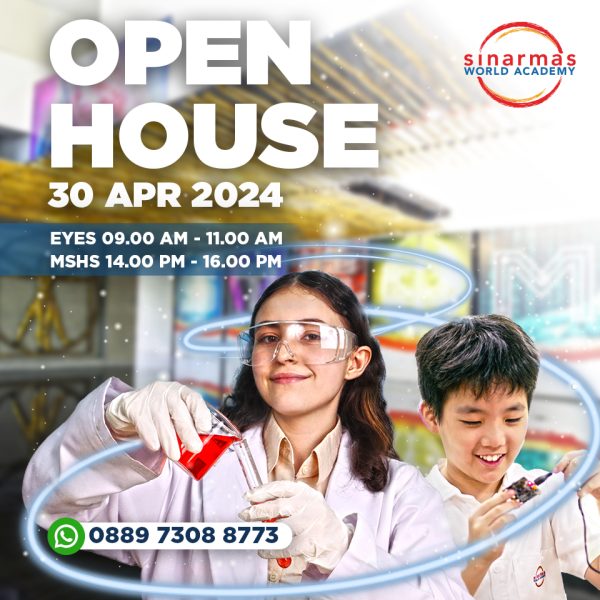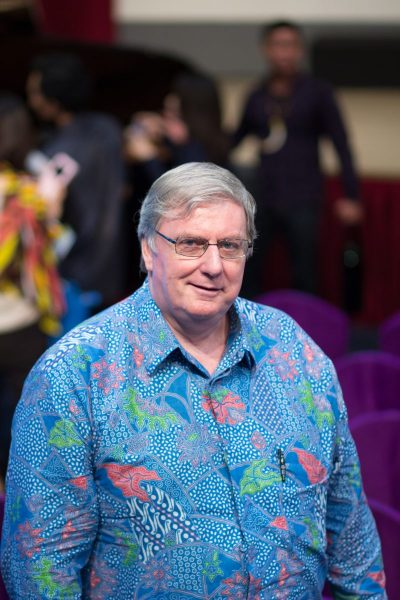Michael is an HR Consultant and Executive Coach, and founded the BritCham Toastmasters Club in Jakarta when he was on the Board of BritCham in 2004. In the same year, he joined the Indonesian Heritage Society, eventually coming on the board as Vice Chair Community, a position he filled for four years. He talks to us about why understanding one’s history and being able to speak eloquently in public are important to him.
What brought you over to Indonesia to begin with?
Originally I came as a tourist in 1981. I had spent my high school years in Singapore, during the period of Konfrontasi with Malaysia and Britain against Indonesia and was fascinated to come and have a look at the other side of the fence. As my father and sister’s family live in Melbourne, I have no need to return to the UK or Germany other than for sightseeing.
You used to be in the corporate world – what made you switch to coaching and consulting?
When I returned to Indonesia in 2004 the Labour Law 13 had been introduced, which didn’t allow ‘bules’ to be employed as HR Managers or Directors. With only 35 years’ experience in HR since I left university and no opportunity to work in HR directly, I looked around and decided to make my fortune as an HR Consultant and Executive Coach. That gave me lots of flexibility to get involved in my other hobbies.
What is the most important lesson you can teach one of your students?
The fact that we are our own worst enemies. We have the ability to do much more with our lives – if we really want to, but we live life with the hand brake on. Let go and follow your dreams.
What are the main objectives of Toastmasters?
The British Toastmasters Club has multinational members – mostly Indonesians wanting to practice their already good English and gain public speaking and leadership skills. A not-for-profit organization, it was founded by Ralph Smedley in 1924 to provide speaking skills training. At the end of June 2015, there were more than 332,000 active Toastmasters in 15,540 clubs in 135 countries. In Indonesia we only have 91 clubs, of which 47 are in Jakarta. Most use English but Toastmasters is available in nine languages, and in Jakarta we have English, Bahasa, Mandarin and Japanese speaking clubs. Being born German, I would like to start a German language club sometime soon. French and Korean are also in the wings.
In addition to native speakers, who might want to improve their career prospects, there are also many Indonesians who would like to practice their foreign languages at low cost and acquire speaking and leadership skills at the same time.
How has Toastmasters helped its members in Jakarta?
When I look back to some of the new Toastmasters I have known since 2004, it is really transformational to see how they have gained confidence and progressed. One Japanese lady has metamorphosed from being a very shy speaker to achieving Distinguished Toastmaster, the highest level available to Toastmasters, in about four years. The Toastmasters training are not lessons. We all learn by doing. Members work through the training manuals at their own speed, delivering speeches at meetings, where they are evaluated by their more experienced peers. Toastmasters is the ideal place to make mistakes from which to learn to be a proficient public speaker.
How long were you the Vice Chairman of the Indonesian Heritage Society (IHS) and how did this opportunity come about?
I joined the IHS in 2004 just after I arrived back in Indonesia for the third time. My first visit in 1981 was for two days as a tourist to Jakarta and a week in Bali before going back to finish off a four-year assignment in Abu Dhabi. Little did I know that I would be back to work in Kalimantan from 1982 to 1984 as the HR Manager for Bechtel constructing the PT Badak LNG plant in Bontang. That’s where I met my wife, Indrati. As they say the rest is history.
I was the Editor of the Monthly Indonesian Heritage Society Magazine for a while, the co-chair for Study Groups and then joined the Board of Management as Vice Chair Community for about four years. The time I have spent with the IHS has been the most fulfilling time of my life.
What interested you to join in this cultural organization?
The fact that there are only 750 female and 50 male friends was not a deciding factor. I have always been interested in history and foreign culture. I was born in a suitcase and have never given it away. My mother was German, my 90-year-old father is British Australian and now lives in the Yarra Valley in Melbourne.
During your time at IHS, can you share what you believe was your most notable work?
Completing the three-month Indonesian Heritage Society training to become qualified as a Tour Guide at the National Museum. I have been a Volunteer Tour Guide since 2008 and have had the privilege to be selected to give tours to thousands of Indonesians and tourists including ambassadors to Indonesia, the wife of the Austrian president and 15 Austrian historians and museum directors, the wife of the Singapore president and ministers from Australia.
You’re currently establishing a Young Heritage section for 18- to 28-year-olds. Tell us more about this.
In my years as a tour guide I have noticed that many young Indonesian have a latent interest in Indonesian history and culture. It is amazing to see the flock of young Indonesians frequenting the museums and Fatahillah Square in Kota Tua. I hope to provide volunteer tour guide training for young Indonesians who cannot spare the time mid-week but are interested in being trained as tour guides to guide at weekends.
Can you tell us why you believe understanding one’s history and culture is important?
As they say, learn from history so as not to make the same mistakes again. Studying the history and culture of different ethnic groups is really fascinating.
What was the most memorable lecture or study group you attended?
The most Interesting study group I joined was learning about the activities and contribution of Alfred Russel Wallace to the Theory of Evolution and the Wallace Line in Indonesia. My degree was in Comparative Animal Physiology but my first job was in HR and I have never looked back. This was a little nostalgic.
Are you still involved in IHS?
Yes, I am still involved in The Indonesian Heritage Society and every year there is more to learn. For the last few Evening Lecture Series, which take place in Erasmus Huis twice each year, I have been the MC. Erasmus Huis has a very varied programme of outstanding exhibitions, lectures and entertainment. There is also an extensive library open to the public.
What do you hope you will have achieved from your time in Indonesia?
A much better understanding of the historical development in Indonesia.
What is your favourite period in Indonesian history?
The Majapahit Empire in the 12th and 13th centuries.
Thank you, Michael. To get in touch, please contact: [email protected]. For more information, visit www.toastmasters.org or www.heritagejkt.org.




